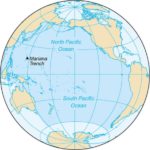By Creation Moments Species of foxglove appear on both sides of the Atlantic. I was familiar with this poisonous weed when I was growing up in England. The plants are abundant in Washington State also. Although every part of the plant is poisonous, it is a source of the useful drug group digitalis, used in the treatment of heart complaints. read more …read more Source: Creation Moments
By Creation Moments British comedian Milton Jones tells this one-liner: It’s difficult to say what my wife does for a living. She sells sea shells on the sea shore. However, the famous tongue-twister actually refers to a young woman who never married. read more …read more Source: Creation Moments
By Creation Moments Why did the Wise Men bring myrrh as a gift for Jesus, along with their gifts of frankincense and gold? This is an interesting question, and many people have pondered the meanings of all the gifts given to Jesus, but I think it is unlikely that we can give a definitive answer. read more …read more Source: Creation Moments
By Sarah Chaffee On this episode of ID the Future, Dr. Jonathan Wells discusses a popular claim, which he describes as “DNA makes RNA makes protein makes us”—or, every organism contains a program for itself in its DNA. Though this view fits neatly with the perspective of Darwinian evolution, it has been shown to be incorrect at every step. Listen in as Dr. Wells explains. Your browser does not support playing Audio, please upgrade your browser or find our podcast on podOmatic Download Episode …read more Source: id the future
By Creation Moments Everybody’s scariest monsters would be robots. I remember as a little boy, in November 1968, hiding behind the couch while watching Doctor Who – The Invasion. I was enthralled as the Cybermen (cybernetic robots) emerged from London’s sewers to take over the world! read more …read more Source: Creation Moments
By kpennock On this episode of ID the Future, Dr. Wolf-Ekkehard Lönnig, an expert in plant breeding and formerly affiliated with the Max Planck Institute for Plant Breeding Research in Germany, further explores that clash of views modern evolutionists often paper over—Darwinism vs. Mendel. Lönnig discusses how Darwinian evolutionary biology held back acceptance of the laws of inheritance, discovered by Gregor Mendel, abbot at the Augustinian Abbey of St. Thomas, Brunn. Mendel vs. Darwin, Pt. 1 Listen in as he explains Mendel’s laws and why they are still relevant for biology, and particularly genetics. Mendel vs. Darwin, Pt. 2 Lönnig [More]
By kpennock On this episode of ID the Future, geneticist Wolf-Ekkehard Lönnig digs further into Gregor Mendel’s laws of inheritance and how they opposed the thinking of Darwin. Lönnig explains how Darwinian evolution hindered the acceptance of Mendel’s genetic laws, and how the laws still came to be accepted. Your browser does not support playing Audio, please upgrade your browser or find our podcast on podOmatic Download Episode …read more Source: id the future
By kpennock On this episode of ID the Future, geneticist Wolf-Ekkehard Lönnig discusses Gregor Mendel’s laws of inheritance and how they opposed the thinking of Darwin. Listen in as he explains Mendel’s laws and why they are still relevant for biology, and particularly genetics. Listen in as he explains Mendel’s laws and why they are still relevant for biology, and particularly genetics. Your browser does not support playing Audio, please upgrade your browser or find our podcast on podOmatic Download Episode …read more Source: id the future
By Creation Moments Do you feel sorry for Pluto? It isn’t a planet anymore. Of course, you might want to point out to me that this is old news. Pluto was reclassified in 2006, being downgraded to the new category of dwarf planet. Thus, the Solar System went back to being a collection of eight planets, just as it had been before the discovery of Pluto in 1930. read more …read more Source: Creation Moments
By Creation Moments When I was a boy, there were nine planets. I remember reports in 1982 about the discovery of a tenth planet. Nobody actually saw the alleged tenth planet through a telescope. However, measurements were made of the orbits of other planets, and perturbations from where they thought the orbits should be were noted. It was assumed that these perturbations were caused by a large planet beyond the orbit of Pluto. read more …read more Source: Creation Moments
By Creation Moments In my book Where Birds Eat Horses, I talk about the way that evolutionists use, or rather misuse, language in order to make their case. One type of language much loved by evolutionists is what we call “fuzzy words”. read more …read more Source: Creation Moments
By Creation Moments A small boy was asked in class “What family does the whale belong to?” Nervously, he replied”I don’t know sir. No family on our street has one!” read more …read more Source: Creation Moments
By Creation Moments Think of the Arctic and you probably think about polar bears. Those magnificent, big, white carnivores are probably pictured in your mind standing on snow and ice, where they can be difficult to see. The Arctic is the realm of the bear, and this is reflected in its name. The word “Arctic” is derived from the Greek word arktos, meaning bear. There are layers of meaning here. read more …read more Source: Creation Moments
A number of secular cosmologists claim that our universe is just one of many universes that exist. Why do they say this? Is there any evidence for this claim? And how does this relate to the creation-evolution controversy? Listen: Hiding from God in the Multiverse | The Institute for Creation Research
Secular scientists have drilled into the thick ice sheets of Greenland and Antarctica and extracted cores that run thousands of meters deep. These scientists claim that the deepest layers are hundreds of thousands of years old. Do these ice cores really prove an old earth? Listen: Do Deep Ice Cores Prove an Old Earth? | The Institute for Creation Research
Many Christians wonder about the ice age. Was there an ice age in earth history? If so, how many were there? And how would such a dramatic climate change fit into biblical history? Listen: The Ice Age | The Institute for Creation Research
By kpennock On this episode of ID The Future, Robert Crowther talks with Dr. Robert Marks, Distinguished Professor of Electrical and Computer Engineering at Baylor University and author of Introduction to Evolutionary Informatics, about artificial intelligence and its limits. From the jump they delve into what artificial intelligence and computers will never be able to do, that is non-algorithmic tasks, and what examples of those look like such as creativity and consciousness. Marks goes over the popular tests for consciousness (Turing Test & Lovelace Test) and explains why computers still have not passed it and never will. Your browser does [More]
By Creation Moments Popular science information websites sometimes reveal fascinating facts. The Science Daily website recently published an articled suggesting that water is not one, but two liquids. read more …read more Source: Creation Moments
By Creation Moments “There can’t possibly have been a worldwide Flood. Where would all the water have gone after the Flood?” This is a common objection to belief in the biblical account of the Flood of Noah’s time. Did the water drain away, or evaporate? read more …read more Source: Creation Moments
By Creation Moments It is notable that the first giving of the Gospel was spoken to Satan, but in the hearing of Adam and Eve. It is also notable that the first Gospel was given immediately after the first sin. God, in His mercy, did not leave mankind for a moment without a means of salvation. read more …read more Source: Creation Moments
By Creation Moments As a child attending Sunday School and listening to so many disconnected Bible stories, I was confused by the account of Cain and Abel. In particular, I found it strange that God accepted Abel’s offering, but not Cain’s. There didn’t seem to be a reason. I remember asking my Sunday School teacher, who didn’t know either. read more …read more Source: Creation Moments
By Sarah Chaffee On this episode of ID The Future, John West, Associate Director of the Center for Science & Culture and author of Walt Disney and Live Action: The Disney Studio’s Live-Action Features of the 1950s and 60s talks about Walt Disney’s life-long fascination with evolution. By exploring the subtle messages promoted by Disney’s theme parks and animated features West shows that evolution rather than being a one-off was an recurring fascination of Disney’s. From the Magic Skyway created for the 1964 World’s Fair to the 1948 animated film Fantasia we see Disney’s recurrent contemplation of evolution. Fantasia explored [More]
By Creation Moments Jesus described Abel as a prophet. He referred to all the prophets who had been killed, “from the blood of Abel to the blood of Zechariah” (Luke 11:51). Prophecy refers to that forthtelling, which comes from the Holy Spirit. The words of the prophet are the words of God. Prophecy can sometimes, though not always, be predictive. read more …read more Source: Creation Moments
By Sarah Chaffee This special reposted episode of ID the Future features Tom Woodward and The Universe Next Door to explore the mysterious origin of birds. A series of papers published in the journal Science presents evidence of the abrupt appearance of major bird groups. Listen in as to learn how these findings support the theory of intelligent design. Your browser does not support playing Audio, please upgrade your browser or find our podcast on podOmatic Download Episode …read more Source: id the future
By kpennock On this episode of ID The Future, host Ray Bohlin talks with Michael Egnor, a pediatric neurosurgeon and professor of neurosurgery at State University of New York Stony Brook about ways modern science validates the idea that the mind is not reducible to the brain. They delve into oddities of neuroscience that indicate that there is more going on in the brain than mere chemistry, and, in particular, walk through the seminal work of Adrian Owen on MRIs and what it reveals. Your browser does not support playing Audio, please upgrade your browser or find our podcast on [More]
By kpennock On this episode of ID The Future, neurosurgery professor Michael Egnor explores the case of Tatiana and Krista, the “Craniopagus Twins.” Their condition, he says, provides evidence against strict materialism. Tatiana and Krista are connected at the thalamus (which controls such things as wakefulness, motor function and vision) through a structure called a thalamic bridge. This bridge enables them to see through each other’s eyes to and control each other’s limbs. Egnor explains how their separate personalities and thoughts nevertheless show that there is something about the mind not reducible to the brain. Egnor also goes through the [More]
By Creation Moments David Bowie sang: Oh man, wonder if he’ll ever know He’s in the best selling show Is there life on Mars? read more …read more Source: Creation Moments

























